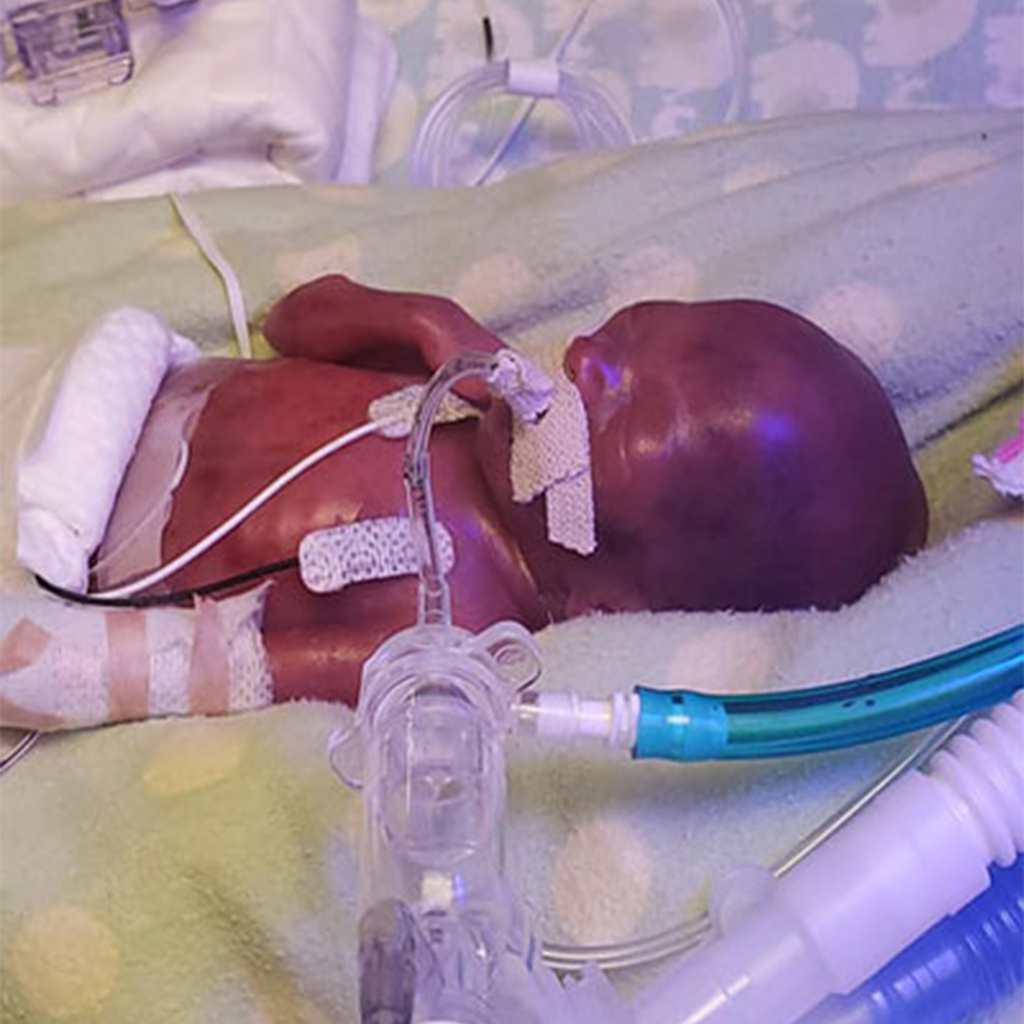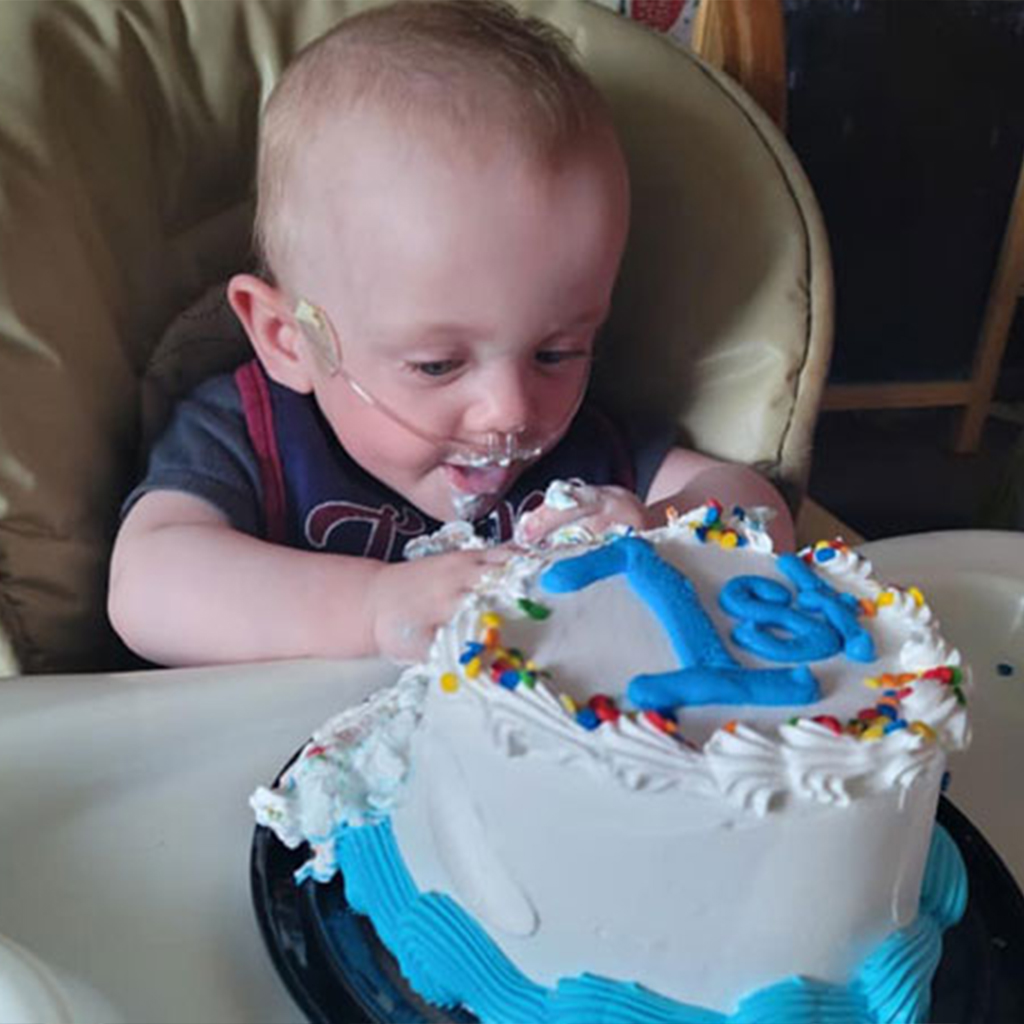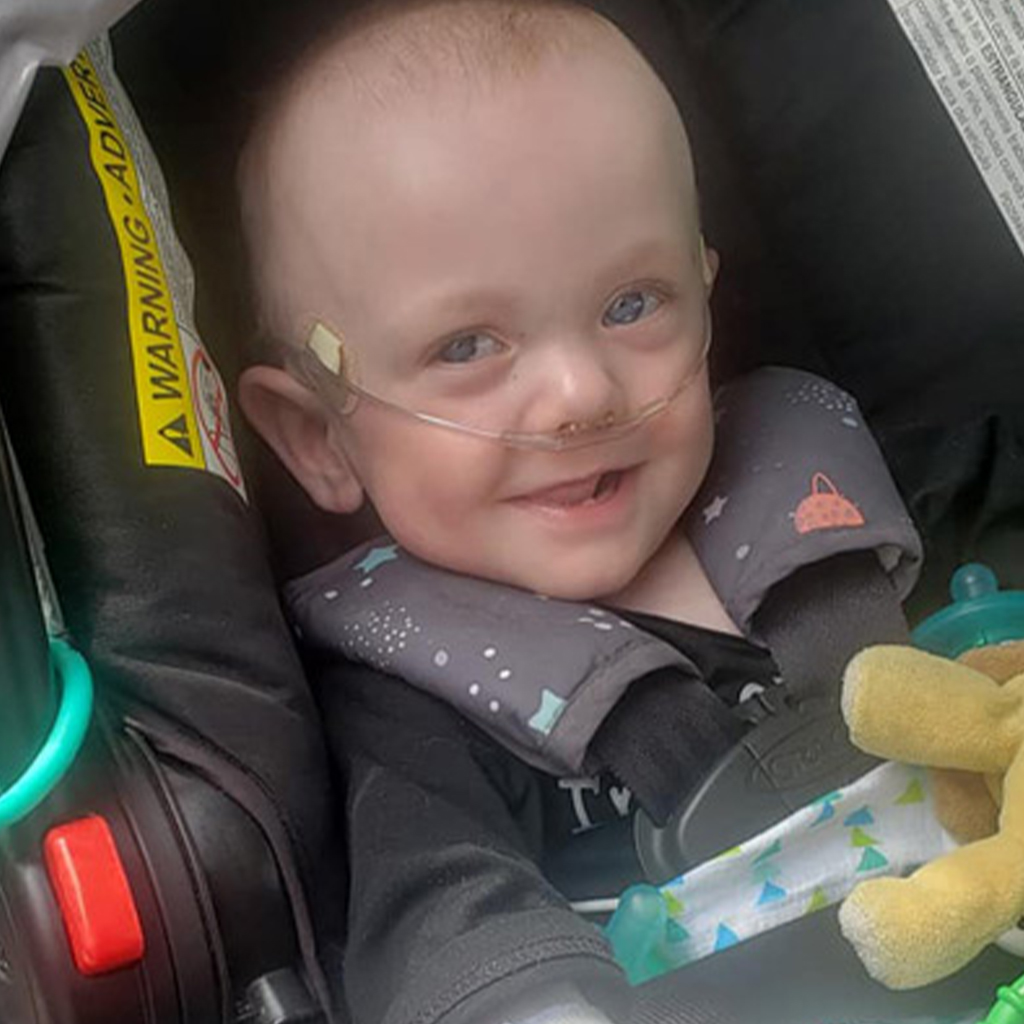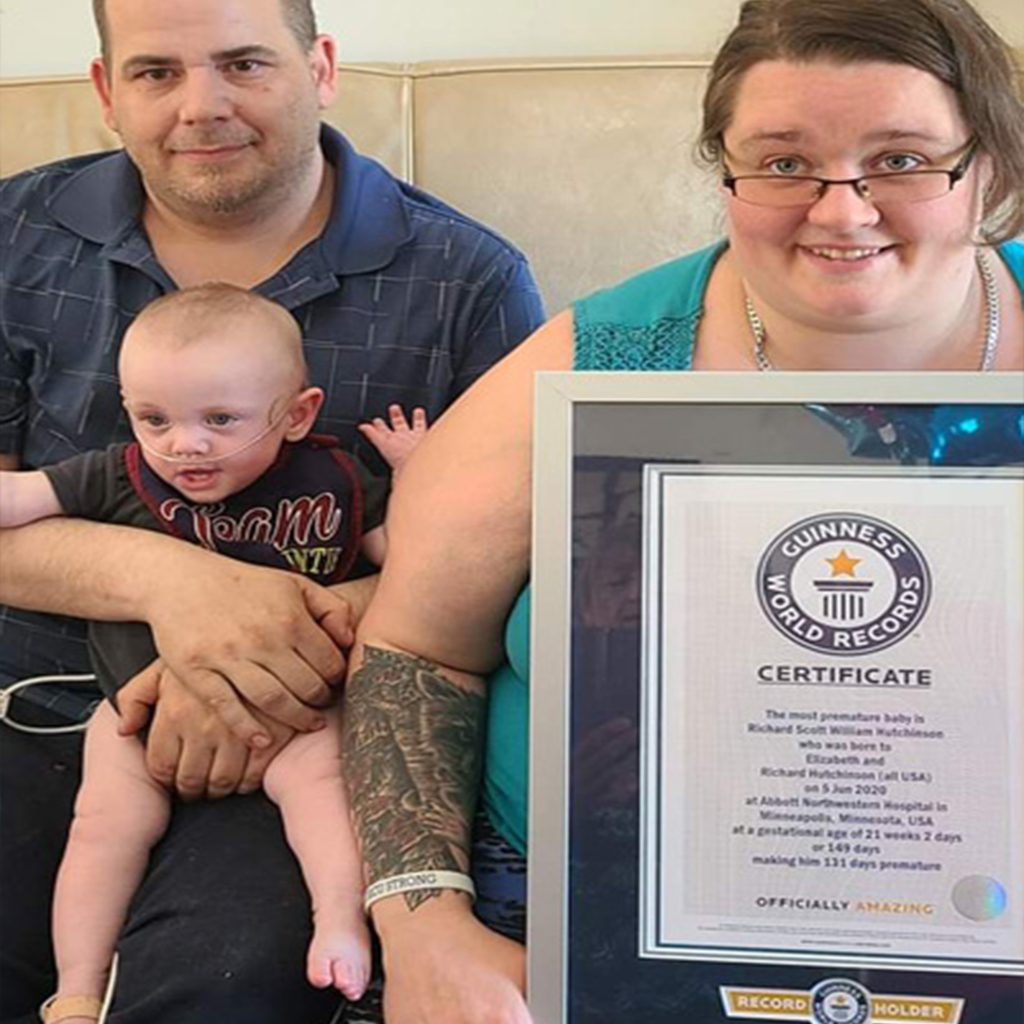When Beth and Rick Hutchinson became parents to their son on June 5, 2020, several months before his expected due date, he was incredibly small, fitting into the palm of their hands. Weighing only 340 grams (11.9 ounces), about the weight of a can of soup or one-tenth the average weight of a full-term newborn, the initial prognosis for Richard Scott William Hutchinson was far from optimistic.
Upon admission to the Neonatal Intensive Care Unit (NICU) at Children’s Minnesota Hospital in Minneapolis, doctors felt it was their duty to inform the parents about the worst-case scenario. According to Dr. Stacy Kern, a primary care physician, when Rick and Beth received prenatal education on premature births, the neonatal experts gave them a 0% chance of survival. However, Richard defied those odds at Children’s Minnesota.

Beth unexpectedly went into labor on October 13, 2020, due to medical issues, approximately four months earlier than planned. After a lengthy discussion with doctors, it was decided to give birth to Richard and do their best to keep him alive. Richard was born at 21 weeks and 2 days of gestation, a staggering 131 days premature. A typical gestation period for a baby is 40 weeks.
June 5, 2021, marked his first birthday, and Guinness World Records officially recognized Richard as the most premature baby to survive, surpassing a record that had stood for three and a half decades. Reports mention Frieda Mangold, who was born to Yvonne and John Mangold in Fulda, Germany, on November 7, 2010, at the same gestational age.

“It continues to amaze us, but we’re content. It’s one way we can spread the word about preterm birth by telling his story.”
The miraculous survival of Richard is credited to his incredible parents who were by his side every step of the way and the entire newborn team at Children’s Minnesota. In early December 2020, after spending more than half a year in the NICU, he was given permission to leave the hospital and go home.

It was a challenging day for Richard’s family as well as the medical staff who supported him at every turn. Dr. Kern shared, “The day Richard was discharged from the NICU was a great day. I was crying when I took him out of his cot, and I just held him.”

Upon returning home, Richard still relied on oxygen, a pulse oximeter, and a feeding tube pump. The family is working towards eliminating these medical aids, but it takes time. Richard has come a long way and is accomplishing incredible things. He has taught me the true meaning of resilience, and every time I look at him, I am reminded of the strength and resilience of all these beautiful little children.
“I believe Richard’s story has inspired so many people around the world, and I think we will continue to learn from him. Thank you, Richard, Beth, and Rick, for all you have taught us. We can’t wait to see what the future holds for you.”
Leave a reply















